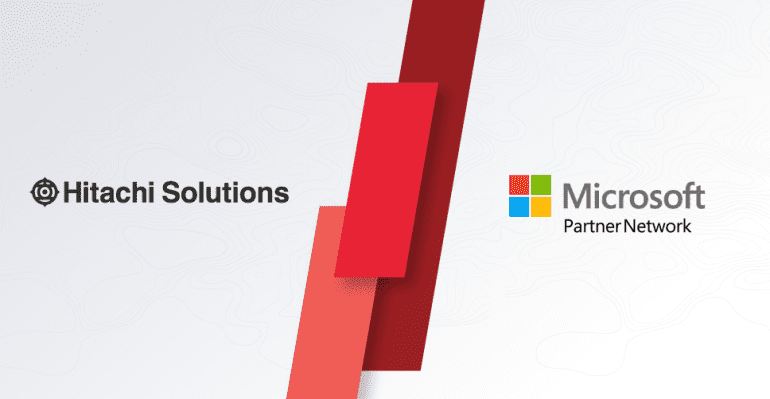- Hitachi and Microsoft announce a groundbreaking collaboration focused on leveraging generative AI for social and business innovation.
- The alliance aims to propel Hitachi’s Lumada business, targeting significant revenue growth and enhanced operational efficiency.
- Integration of Microsoft’s cloud solutions into Lumada ecosystem promises innovative solutions for energy, mobility, and other sectors.
- Joint projects will address pressing business needs, including bolstering cloud services, cybersecurity, and environmental sustainability.
- Hitachi’s Generative AI Center collaborates with Microsoft to streamline operations and enhance application development.
- Hitachi Rail harnesses GenAI for predictive maintenance, optimizing equipment monitoring and safety standards.
- Lumada solutions are enhanced with generative AI capabilities, improving responsiveness and operational efficiencies.
- Initiatives for eco-conscious growth include reducing CO2 emissions through zero-carbon data center projects.
- Hitachi to train over 50,000 GenAI Professionals, fostering talent development for AI-driven transformation.
Main AI News:
In a landmark agreement poised to reshape the landscape of social and business innovation, Hitachi Ltd. and Microsoft Corp. have unveiled a transformative collaboration set to unfold over the next three years. This partnership, projected to amass multibillion-dollar revenues, is geared towards propelling social progress through the deployment of generative AI technologies.
Underpinning this strategic alliance is Hitachi’s ambitious agenda to foster the growth of its Lumada business, targeting a staggering revenue milestone of 2.65 trillion yen (18.9 billion USD)*1 by FY2024. Moreover, Hitachi aims to drive operational excellence and heightened productivity across its extensive workforce of 270,000 employees.
At the heart of this collaboration lies the integration of Microsoft’s cutting-edge cloud solutions, including Azure Open AI Service, Dynamics 365, Copilot for Microsoft 365, and GitHub Copilot, into Hitachi’s Lumada ecosystem. This synergy seeks to deliver pioneering solutions tailored for sectors such as energy and mobility, promising to yield tangible benefits for enterprises and society at large.
Embracing the imperative of sustainability, Hitachi and Microsoft are set to embark on joint initiatives addressing critical business imperatives. These endeavors encompass bolstering cloud infrastructure, fortifying cybersecurity, and mitigating the environmental footprint of data centers, amidst the escalating adoption of generative AI technologies.
Keiji Kojima, President and CEO of Hitachi, underscored the transformative potential of this collaboration, emphasizing its pivotal role in driving social innovation across vital sectors such as energy and mobility. Kojima expressed excitement at the prospect of harnessing generative AI to enhance frontline productivity, thereby charting a path towards a more sustainable future.
Echoing Kojima’s sentiments, Satya Nadella, Chairman and CEO of Microsoft, heralded the dawn of a new era in AI-driven transformation. Nadella highlighted the synergistic fusion of Microsoft’s cloud prowess with Hitachi’s domain expertise, poised to empower over a quarter-million Hitachi employees and tackle the most pressing challenges confronting customers, notably sustainability.
As part of Hitachi’s organizational metamorphosis, the company’s Generative AI Center will collaborate closely with Microsoft to streamline operations and accelerate application development. Leveraging tools such as Copilot for Microsoft 365 and GitHub Copilot, Hitachi aims to elevate operational efficiency and bolster customer service through the Azure OpenAI Service.
In parallel, Hitachi Rail is harnessing the power of GenAI to revolutionize predictive maintenance, optimizing equipment monitoring and bolstering forecast accuracy. This proactive approach not only enhances service quality but also drives cost efficiencies while augmenting safety standards.
Moreover, Hitachi is poised to unleash a wave of digital innovation by infusing Lumada solutions with generative AI capabilities. Already, Microsoft’s Generative AI is being deployed to turbocharge JP1 Cloud Services, streamlining operations and enhancing responsiveness across a myriad of sectors.
In lockstep with their commitment to sustainability, Hitachi and Microsoft are spearheading initiatives to promote eco-conscious growth. Notably, efforts are underway to curtail CO2 emissions through a zero-carbon data center project in Europe, underscoring their shared commitment to environmental stewardship.
In tandem with these initiatives, Hitachi is poised to usher in a new era of digital skilling and talent development. With plans to train over 50,000 GenAI Professionals, Hitachi is poised to equip a new generation of AI trailblazers with the requisite skills to navigate the evolving digital landscape.
Conclusion:
The partnership between Hitachi and Microsoft signifies a pivotal moment in the AI-driven innovation landscape, with far-reaching implications for businesses and society. By harnessing generative AI technologies, the alliance promises to unlock unprecedented value, driving operational efficiencies, enhancing safety standards, and advancing environmental sustainability. As businesses embrace these transformative solutions, they stand poised to gain a competitive edge in an increasingly digitized marketplace, driving growth and driving societal progress.

